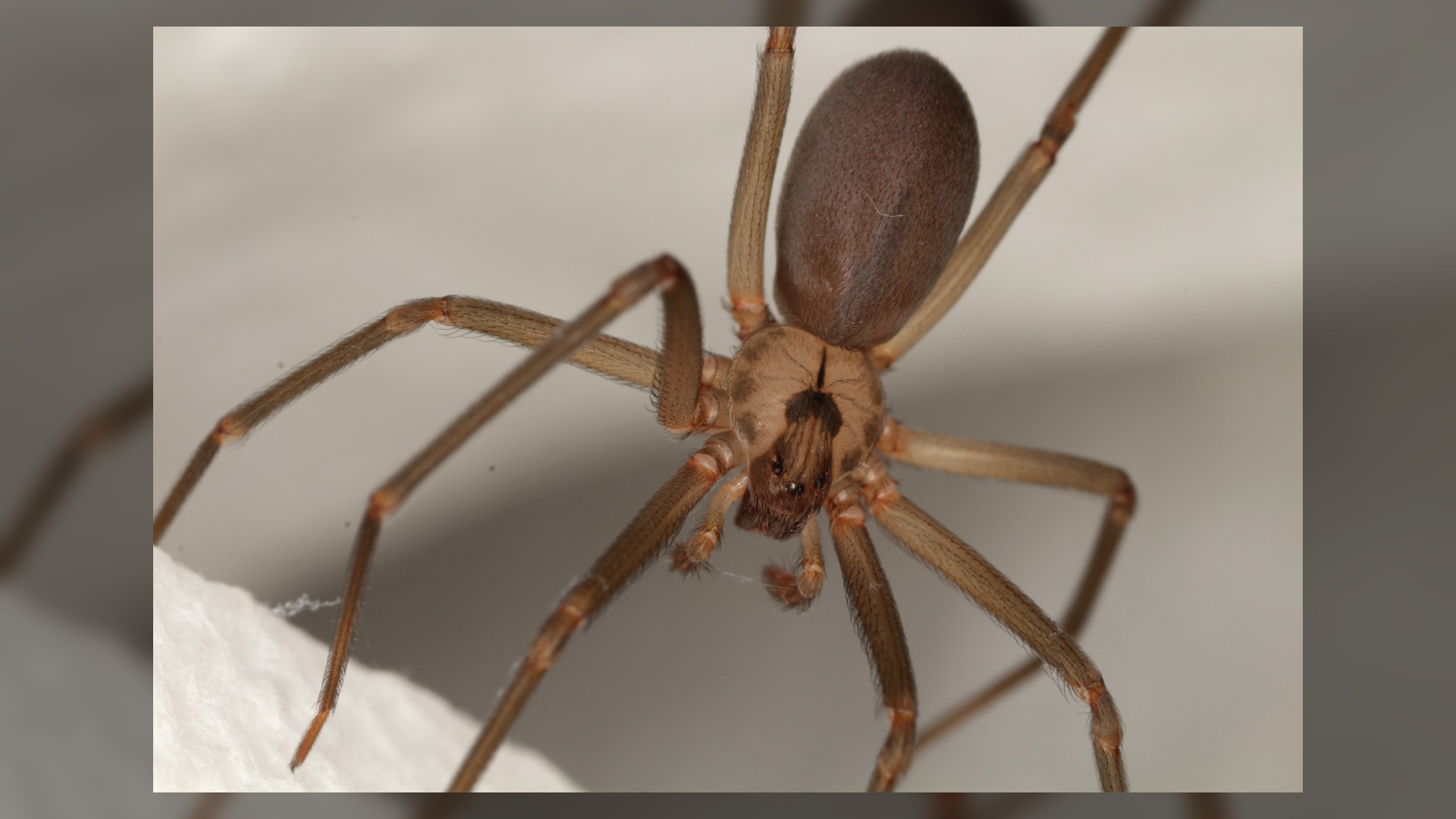Brown recluse bites caused two people's blood cells to self-destruct
Bites from brown recluse spiders can cause an autoimmune form of hemolytic anemia, in which red blood cells are destroyed by the immune system.

Two people who were bitten by brown recluse spiders developed a rare condition in which their immune systems destroyed their red blood cells, a new case report shows.
In the first case, a 30-year-old man came to the hospital because he was nauseous, vomiting, had muscle aches, and had a painful lesion on his left shoulder. In the other case, a 28-year-old woman came in for bad low back pain. They both had strange-looking lesions. The man’s, on his left shoulder, was small and irregularly shaped, with a black scabby portion on one side; the woman’s, on her upper back, was target-shaped and larger. Both were painful to the touch.
In both cases, doctors noticed that the whites of the patients’ eyes were yellowish. The condition, called scleral icterus, is caused by a buildup of a pigment called bilirubin in the blood, which is made when red blood cells break down.
Based on blood testing, both patients were diagnosed with a condition called warm autoimmune hemolytic anemia — something was causing their immune systems to destroy their red blood cells. In both cases, that something was systemic loxoscelism, a body-wide reaction to a bite from the venomous Loxosceles reclusa spider, otherwise known as the brown recluse.
Though brown recluse bites can be painless, the bite can become itchy, red, and inflamed shortly after the bite occurs, according to the National Capital Poison Center (NCPC). It may eventually become more painful, darker, and form a blister. A bite can also cause necrosis, or tissue death, surrounding it, and can eventually form a black, scab-like area called an eschar. Brown recluse bites are difficult to diagnose, according to the NCPC — doctors make the diagnosis based on a patient’s history and symptoms, if they have any.
Related: The 11 deadliest spiders
The patients in the report were treated with intravenous fluids and corticosteroids, which suppress the immune system. Both were also given blood transfusions, and eventually recovered enough to leave the hospital.
Sign up for the Live Science daily newsletter now
Get the world’s most fascinating discoveries delivered straight to your inbox.
The man’s recovery was uncomplicated, the woman’s less so for reasons apparently unrelated to her spider bite. She was six weeks pregnant and had a miscarriage, and also developed a brain condition called acute metabolic-toxic encephalopathy while in the hospital. This condition can also be caused by withdrawal from alcohol and drugs, and the woman had a history of drug abuse. But she eventually also recovered enough to be discharged with oral corticosteroids.
The treatment course went well for these patients: some people who develop autoimmune hemolytic anemia must take a blood cancer drug with potentially severe side effects if corticosteroids don't work, and some may even need to have the spleen removed, according to the study.
The brown recluse spider, a small, brownish or tan spider with a dark brown “violin-shaped” marking on its head, lives in several parts of the United States, but is most common in Texas, Missouri, and Illinois.
Most people shouldn't lose sleep worrying about brown recluse bites, as they are rare, and 90% of them don’t cause any major complications.
Children, as well as African American and Hispanic people, are at greater risk for having systemic reactions, according to the study. The American Association of Poison Control Centers reported that in 2019, out of 802 reported brown recluse bites, only 24 people had major reactions, and no deaths were reported.
The brown recluse bites were described in a report published in the journal Hematology.

Rebecca Sohn is a freelance science writer. She writes about a variety of science, health and environmental topics, and is particularly interested in how science impacts people's lives. She has been an intern at CalMatters and STAT, as well as a science fellow at Mashable. Rebecca, a native of the Boston area, studied English literature and minored in music at Skidmore College in Upstate New York and later studied science journalism at New York University.










